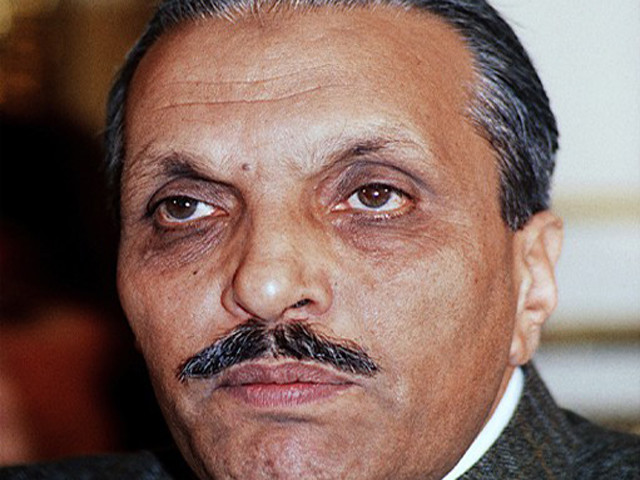‘Zia remnants hurting us’
General Zia’s sidetracking of the democratic process created space for religious extremists, said historians.

‘Zia remnants hurting us’
Gen. Zia, several other top Pakistani generals and the then US ambassador to Pakistan were killed in an aircraft crash near Bahawalpur on August 17, 1988. “His 11-year rule will be remembered as an age of dictatorship, extremism and fanaticism,” historian Dr Mubarik Ali told The Express Tribune.
The blasphemy laws, Hudood Ordinances and the establishment of the Federal Shariat Court were among the dictator’s most damaging laws, he said.
“Zia formed a parallel judiciary by establishing the Federal Shariat Court,” he said. “His education system narrowed their minds.”
Dr Mubarik said Zia’s decision to ban political parties from elections created a political space that was filled by religious extremists. “He weakened the political parties and supported some religious parties to use them against his opponents,” he said.
Educationist Dr AH Nayyar said the general’s attempts to “Islamise” schools subjects including science played havoc with the education system. During his rule Pakistan had hosted international ‘science’ conferences at which people read research papers on bizarre subjects such as how to extract energy from djinn, he said.
Zia’s education ministry had issued curriculum guidelines under which schools could not teach science topics that contradicted religious orthodoxy, he said. “Remnants of Zia’s period are still present in the education ministry. They resist any attempt to redesign education policy.”
Dr Hasan Askari said Zia’s regime was focused on how to strengthen Islamic orthodoxy rather than how to strengthen Pakistan. The dictator also encouraged militancy among young people, he said.
Imtiaz Alam of the South Asian Free Media Association said that Zia had changed the character of the constitution from a liberal to a theocratic document. Successive parliaments since Zia didn’t have enough liberal members to undo his amendments, he said.
“Even the 18th Amendment does not touch Islamic provisions like the inclusion of the Objectives Resolution in the constitution as a preamble, the Federal Shariat Court, Prevention of Qadianat Ordinance and the Qanoon-e-Shahadat, under which many rape victims have been prosecuted,” he said.
Published in The Express Tribune, August 18th, 2010.



















COMMENTS
Comments are moderated and generally will be posted if they are on-topic and not abusive.
For more information, please see our Comments FAQ